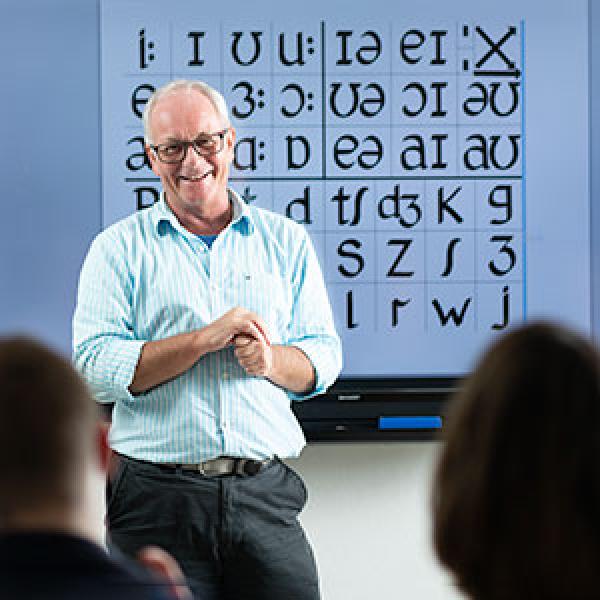5th January 2021
2020 was a year of change for everyone. Due to the Covid 19 situation, all of the Trinity Cert TESOL courses at English for Asia are currently online. Saying this does cause some confusion and misunderstanding. Despite the change in delivery, the number of contact hours remains the same as when the courses are conducted face-to-face at the centre. The 130 contact hours on the Cert TESOL course does exceed the minimum requirements e.g. from the Hong Kong Education Bureau who require 100 contact hours for a course to meet their requirements for the primary NET scheme and the Trinity Cert TESOL more than fulfills this.
Whilst there is a self paced, self learning element to the course, timetabled input sessions are live with a course tutor over Zoom and the observed/supervised teaching practice is live over Zoom. So, there is no need to have concerns over the delivery of the courses as the delivery is exactly the same as if it was in the centre, except over Zoom. In July 2021, we began to phase in face to face (in-person) teaching practice by allowing 2 out of the 6 teaching practice lessons to be conducted at English for Asia.
In 2020, we essentially moved to delivering the Cert TESOL online because of the covid-19 situation and its gone very well. We’ve also achieved a social responsibility goal and the courses are now for all intents and purposes, 'paperless'. Some of us in the team are moving on for one reason or another, it’s a shame but c’est la vie. Nevertheless we’ve had a noticeable increase in the numbers of trainees on part time and full time courses during the year, an indication that people are still enthusiastic about teaching.
There are those people who are still thinking about it and to help you make the decision of whether to take a course or not, you need to do your research. You will find that with a little effort on google and reading what you find will answer 99% of the questions you might want to ask. To begin with, have a look at the Trinity College London TESOL website, which will give you an outline of the courses, the entry requirements and the course content. This link covers the Cert TESOL, Cert PT, TYLEC and Dip TESOL and should answer your questions about the courses and give you an idea of which course might be the most suitable for you.
This can be important as some people would like to do a certain course, but don’t meet the minimum entry requirements and find this out when they make the application. A lot of time can be saved by doing research and reading about the Trinity courses before making the application or finding the time to make a call. If you’ve found the right course for you, then take the next step and look at the English for Asia website, which will give you more of a tailored view of the courses as delivered by English for Asia and will provide you with access to the application form.
One of the things that seems to need clarification regularly are the entry requirements. This is particularly so for those who would like to or think they meet the requirements for the Trinity Dip TESOL. But before we go into this let’s have a look at the requirements for the Trinity Cert TESOL.
We have a wide range of people complete the course in any one year, varying in age qualifications and cultural backgrounds. Here are some of the main concerns people have before they begin the application process.
Am I too young? Am I too old?
Trinity requires trainees to be a minimum of 18 years old at the time of entry to the course — i.e. on the first day of the course — which will normally be at the start of the pre-course task. Course providers may set a higher minimum age limit if they choose, provided this does not contravene any applicable law. Trinity does not specify an upper age limit.
Do I need any academic qualifications to do the course?
Trinity requires trainees to have, as a minimum, qualifications for entry to higher education (tertiary level) in the UK or in the trainees’ home country, or the equivalent in terms of demonstrated academic a study potential. This may include study for professional qualifications in other fields. It is not necessary for this to have been in a teaching-related field. Course providers must require proof of relevant qualifications; normally this will be required at interview.
Is my English good enough?
Prospective trainees must demonstrate a high level of competence in reading, writing, speaking and listening in English as appropriate to a teacher of the language and sufficient to equip them for the training process. Trainees for whom English is an additional language should have a level of English usage that is at C1 level of the Common European Framework of Reference (CEFR) in all of the four skills; reading, writing, speaking and listening and demonstrated through the interview and written assessment.
Can I get a job with the cert TESOL?
There is no yes or no answer to this question, but the Trinity Cert TESOL is accredited at Level 5 on the Regulated Qualifications Framework (RQF) of the U.K. Government Office of Qualifications and Examinations Regulation (Ofqual). It is one of two TESOL qualifications that are recognized worldwide (the other being the Cambridge CELTA). The Trinity Cert TESOL is recognised by the HK Education Bureau as meeting one of the qualifications requirements for the Primary NET Scheme. As with any other qualification, the recognition of the qualification for employment is a matter of discretion for individual employers.
You might now feel you are ready to apply for the Cert TESOL.
If you already have an initial teacher training qualification e.g., the Trinity Cert TESOL and teaching experience you might be considering the Trinity Dip TESOL. The information about the Dip TESOL can be found on the Trinity College London website. As with the Cert TESOL, this site will provide you with an outline of the course, entry requirements and course content and the English for Asia website will provide a more tailored view.
It is sometimes the case that people want to take the diploma as they feel it is more prestigious, although they have little or no experience in TESOL and/or do not have an initial teacher training qualification. What some people fail to realise is that the Trinity Diploma is accredited at Level 7 of the U.K. Government Regulated Qualifications Framework and that has the same level of detail and rigour of studying for a Postgraduate qualification. It’s a little like trying to take a Masters Degree without studying the subject at undergraduate level first.
What are the entry requirements?
Candidates for the LTCL Diploma TESOL must have a degree or equivalent. This could be another type of qualification which shows evidence of sustained academic study which would potentially enable the candidate to cope successfully with the requirements of the LTCL Diploma.
Original qualifications or validated copies must be shown at interview, and copied for the candidate’s file. Applicants who do not possess a degree, but who have an equivalent qualification or relevant combination of qualification(s) and experience, must be tested more stringently at interview, and a sample enhanced written task must be submitted in the proposal.
An initial formal TESOL training qualification (e.g. CertTESOL or equivalent) is highly recommended, but not essential.
The LTCL Diploma TESOL examinations lead to qualifications which are intended for experienced and (normally) practising ESOL teachers. The ESOL teaching experience requirement prior to the course start is two years full-time classroom teaching. In the case of part-time teachers the same minimum quantity of teaching experience may be accumulated over a longer period.
The total minimum amount of teaching experience required is 960 hours. Candidates must show evidence at interview that they have a minimum of 960 hours teaching, irrespective of whether this has been gained through full-time or part-time experience.
Applicants are required to declare their teaching experience at the point of application.
The above are the minimum teaching experience requirements for admission to the LTCL Diploma TESOL course. This minimum is not negotiable and Trinity reserves the right to require documentary evidence of claimed teaching experience.
The entry requirements are strict, so make sure you are fully familiar with them before making your application and that way you won’t go wrong or be disappointed.
If you you're not quite ready to get a formal teaching qualification, the introductory module of English for Asia's CertTESOL course is now available as a standalone online course – the TESOL Starter course. This course will prepare you with the foundation knowledge required to confidently tackle a Trinity CertTESOL course. The HKD $1,200 starter course fee will be deducted from the Trinity CertTESOL course fee should you choose to study with EfA.



